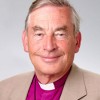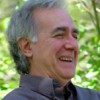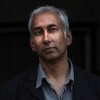Want to know what books Richard Harries recommends on their reading list? We've researched interviews, social media posts, podcasts, and articles to build a comprehensive list of Richard Harries's favorite book recommendations of all time.
1

This distillation of 20 years of Rowan Williams' pastoral and academic work tackles many of the most searching questions of theology and society at the end of the twentieth century.
* Collects the work of a prominent writer and serving bishop on the history of Christian theology and spirituality.
* Brings together Rowan Williams' theological essays with studies of wider issues from a theological point of view.
* Includes an introduction to his work by Bishop Williams. more This distillation of 20 years of Rowan Williams' pastoral and academic work tackles many of the most searching questions of theology and society at the end of the twentieth century.
* Collects the work of a prominent writer and serving bishop on the history of Christian theology and spirituality.
* Brings together Rowan Williams' theological essays with studies of wider issues from a theological point of view.
* Includes an introduction to his work by Bishop Williams. less 
Richard HarriesThis is a collection of his essays from the 1980s and 90s on a range of subjects, he is acutely aware of all modern dilemmas. (Source)
See more recommendations for this book...
2

This anonymous fourteenth-century text is the glory of English mysticism, and one of the most practical and useful guides to finding union with God ever written. Carmen Acevedo Butcher’s new translation is the first to bring the text into a modern English idiom—while remaining strictly faithful to the meaning of the original Middle English.
The Cloud of Unknowing consists of a series of letters written by a monk to his student or disciple, instructing him (or her) in the way of Divine union. Its theology is presented in a way that is remarkably easy to understand, as well... more This anonymous fourteenth-century text is the glory of English mysticism, and one of the most practical and useful guides to finding union with God ever written. Carmen Acevedo Butcher’s new translation is the first to bring the text into a modern English idiom—while remaining strictly faithful to the meaning of the original Middle English.
The Cloud of Unknowing consists of a series of letters written by a monk to his student or disciple, instructing him (or her) in the way of Divine union. Its theology is presented in a way that is remarkably easy to understand, as well as practical, providing advice on prayer and contemplation that anyone can use. Previous translations of the Cloud have tended to veil its intimate, even friendly tone under medieval-sounding language. Carmen Butcher has boldly brought the text into language as appealing to modern ears as it was to its original readers more than five hundred years ago.
Also included in the volume is the companion work attributed to the same anonymous author, The Book of Privy Counsel, which contains further advice for approaching God in a way that emphasizes real experience rather than human knowledge. less 
Richard HarriesThis book, for me, is very important because Christianity has this strong mystical tradition, which can often be neglected. (Source)
See more recommendations for this book...
3

Saint Augustine and Henry Chadwic | 4.21
Augustine's Confessions is one of the most influential and most innovative works of Latin literature. Written in the author's early forties in the last years of the fourth century A.D. and during his first years as a bishop, they reflect on his life and on the activity of remembering and interpreting a life. Books I-IV are concerned with infancy and learning to talk, schooldays, sexual desire and adolescent rebellion, intense friendships and intellectual exploration. Augustine evolves and analyses his past with all the resources of the reading which shaped his mind: Virgil and Cicero,... more Augustine's Confessions is one of the most influential and most innovative works of Latin literature. Written in the author's early forties in the last years of the fourth century A.D. and during his first years as a bishop, they reflect on his life and on the activity of remembering and interpreting a life. Books I-IV are concerned with infancy and learning to talk, schooldays, sexual desire and adolescent rebellion, intense friendships and intellectual exploration. Augustine evolves and analyses his past with all the resources of the reading which shaped his mind: Virgil and Cicero, Neoplatonism and the Bible. This volume, which aims to be usable by students who are new to Augustine, alerts readers to the verbal echoes and allusions of Augustine's brilliant and varied Latin, and explains his theological and philosophical questioning of what God is and what it is to be human. The edition is intended for use by students and scholars of Latin literature, theology and Church history. less 
Susan JacobyThe Confessions is a book that everybody should read. It is seminal, if you can excuse the expression. (Source)

Carlos EireSt Augustine of Hippo was one of the first thinkers to struggle with the concepts of time, memory and eternity. (Source)
See more recommendations for this book...
4

<div>Here is a pugnacious book by a philosopher who often hits the headlines. The book reflects on the nature of religion and how it relates or ought to relate to the rest of life.</div><br/><div> </div><br/><div>Many people today are totally indifferent to religion but religion is far from dead. Indeed religions are intensely defended and aggressively pursued. Religion is a cause for dissension and death. This is beyond... more <div>Here is a pugnacious book by a philosopher who often hits the headlines. The book reflects on the nature of religion and how it relates or ought to relate to the rest of life.</div><br/><div> </div><br/><div>Many people today are totally indifferent to religion but religion is far from dead. Indeed religions are intensely defended and aggressively pursued. Religion is a cause for dissension and death. This is beyond dispute.</div><br/><div> </div><br/><div>Mary Warnock is concerned with Christianity. She argues that to value religion as the essential foundation of morality is a profound and probably dangerous mistake. Warnock's overriding purpose is to prise apart religion and morality. Judges for example are constantly being asked to pass judgement on moral issues in court. Because of The Human Rights Act, the law perforce is involved. Morality is therefore increasingly a public and not just a private matter.</div><br/><div> </div><br/><div>This book attempts to clarify the foundation of morality in a society largely indifferent to and ignorant of religion. Religion nevertheless emerges as a source of deep and unique imaginative experience.</div>> less 
Richard HarriesYes, she’s arguing for politics without religion, taking religion out of politics. It’s a very dramatic title, and I have a lot of sympathy with what she’s saying. She’s particularly irritated and indeed angry about the impression being given by some religious people that religion is the source of all morality and that it holds the high moral ground. For example, she is annoyed by the assumption... (Source)
See more recommendations for this book...
5

The role of women in our society has changed out of all recognition. But it has changed least in the House of Commons. I want to describe those changes and the resistances to them through the magnifying glass of my own life, a life that coincides with our turbulent post-war history.'
Shirley Williams was born to politics. As well as being influenced by her mother, Vera Brittian, her father George Caitlin, a leading political scientist, encouraged his daughter to have high ambitions for herself - including daring to climb the bookshelves in his library. Elected as MP for Hitchin in... more The role of women in our society has changed out of all recognition. But it has changed least in the House of Commons. I want to describe those changes and the resistances to them through the magnifying glass of my own life, a life that coincides with our turbulent post-war history.'
Shirley Williams was born to politics. As well as being influenced by her mother, Vera Brittian, her father George Caitlin, a leading political scientist, encouraged his daughter to have high ambitions for herself - including daring to climb the bookshelves in his library. Elected as MP for Hitchin in 1964, she was a member of the Wilson and Callaghan governments and was also the Secretary of State for Education. As one of the 'Gang of Four' Shirley Williams famously broke away from the Labour Party to found the SDP in 1981 and later supported its merger with the Liberal Party to form the Liberal Democrats.
CLIMBING THE BOOKSHELVES is the voice of strong and passionate woman of luminous intelligence. less 
Richard HarriesThat’s very interesting, because I think that there is a fascinating juxtaposition of the de Gaulle book with Shirley Williams’s book. Shirley Williams is also a person of very strong conviction, but, as she herself said, she perhaps lacked enough confidence and ruthlessness to aim for the top job. She is a woman who had to fight her way in what was then a very male-dominated world, and, although... (Source)
See more recommendations for this book...
6
This is a magisterial, sweeping biography of one of the great leaders of the 20th century - General Charles De Gaulle. more This is a magisterial, sweeping biography of one of the great leaders of the 20th century - General Charles De Gaulle. less 
Richard HarriesThe reason I’m interested in this book is because de Gaulle offers a particular model of leadership – very autocratic and yet a leadership that saved France on at least two occasions. (Source)
See more recommendations for this book...
7

In his recent writings on religion and secularization, Habermas has challenged reason to clarify its relation to religious experience and to engage religions in a constructive dialogue. Given the global challenges facing humanity, nothing is more dangerous than the refusal to communicate that we encounter today in different forms of religious and ideological fundamentalism. Habermas argues that in order to engage in this dialogue, two conditions must be met: religion must accept the authority of secular reason as the fallible results of the sciences and the universalistic egalitarianism in... more In his recent writings on religion and secularization, Habermas has challenged reason to clarify its relation to religious experience and to engage religions in a constructive dialogue. Given the global challenges facing humanity, nothing is more dangerous than the refusal to communicate that we encounter today in different forms of religious and ideological fundamentalism. Habermas argues that in order to engage in this dialogue, two conditions must be met: religion must accept the authority of secular reason as the fallible results of the sciences and the universalistic egalitarianism in law and morality; and conversely, secular reason must not set itself up as the judge concerning truths of faith. This argument was developed in part as a reaction to the conception of the relation between faith and reason formulated by Pope Benedict XVI in his 2006 Regensburg address.
In 2007 Habermas conducted a debate, under the title 'An Awareness of What Is Missing', with philosophers from the Jesuit School for Philosophy in Munich. This volume includes Habermas's essay, the contributions of his interlocutors and Habermas's reply to them. It will be indispensable reading for anyone who wishes to understand one of the most urgent and intractable issues of our time. less 
Richard HarriesHabermas is also writing from what I imagine is a secular agnostic background. But what is so interesting about this book is that he is quite unequivocal in his affirmation of what religion has given to western society: concepts like the value of the person and solidarity in society, for example. He thinks our society has derived these values from Christian faith. He believes that in the politics... (Source)
See more recommendations for this book...
8

Something is profoundly wrong with the way we think about how we should live today.
In Ill Fares The Land, Tony Judt, one of our leading historians and thinkers, reveals how we have arrived at our present dangerously confused moment. Judt masterfully crystallizes what we’ve all been feeling into a way to think our way into, and thus out of, our great collective dis-ease about the current state of things.
As the economic collapse of 2008 made clear, the social contract that defined postwar life in Europe and America – the guarantee of a basal level of security, stability... more Something is profoundly wrong with the way we think about how we should live today.
In Ill Fares The Land, Tony Judt, one of our leading historians and thinkers, reveals how we have arrived at our present dangerously confused moment. Judt masterfully crystallizes what we’ve all been feeling into a way to think our way into, and thus out of, our great collective dis-ease about the current state of things.
As the economic collapse of 2008 made clear, the social contract that defined postwar life in Europe and America – the guarantee of a basal level of security, stability and fairness -- is no longer guaranteed; in fact, it’s no longer part of the common discourse. Judt offers the language we need to address our common needs, rejecting the nihilistic individualism of the far right and the debunked socialism of the past. To find a way forward, we must look to our not so distant past and to social democracy in action: to re-enshrining fairness over mere efficiency.
Distinctly absent from our national dialogue, social democrats believe that the state can play an enhanced role in our lives without threatening our liberties. Instead of placing blind faith in the market—as we have to our detriment for the past thirty years—social democrats entrust their fellow citizens and the state itself.
Ill Fares the Land challenges us to confront our societal ills and to shoulder responsibility for the world we live in. For hope remains. In reintroducing alternatives to the status quo, Judt reinvigorates our political conversation, providing the tools necessary to imagine a new form of governance, a new way of life. less 
Richard HarriesI found Tony Judt, who has just died, very honest and wise. All the obituaries said he was a wonderfully stimulating teacher, but I only know him through his writing. His thesis is that over the last 30 or 40 years life has been dominated by the pursuit of wealth, by an excessive individualism, and by the desire of people to express and fulfil themselves. He castigates the west for having that... (Source)
See more recommendations for this book...
9

Reinhold Niebuhr (1892-1971) was one of America's foremost twentieth-century religious thinkers and social critics. As pastor of Bethel Evangelical Church in Detroit, he became deeply interested in social problems. He was Professor of Applied Christianity at Union Theological Seminary, remaining there until his retirement. Ultimately, he abandoned his liberal Protestant hopes for the church's moral rule of society and became a Socialist activist.
Moral Man and Immoral Society is Niebuhr's eloquent argument for the church's involvement in social reforms as well as a platform for his... more Reinhold Niebuhr (1892-1971) was one of America's foremost twentieth-century religious thinkers and social critics. As pastor of Bethel Evangelical Church in Detroit, he became deeply interested in social problems. He was Professor of Applied Christianity at Union Theological Seminary, remaining there until his retirement. Ultimately, he abandoned his liberal Protestant hopes for the church's moral rule of society and became a Socialist activist.
Moral Man and Immoral Society is Niebuhr's eloquent argument for the church's involvement in social reforms as well as a platform for his beliefs that men are sinners, that society is ruled by self-interest, and that history is characterized by irony, not progress. less 
Richard HarriesHe is one of the few theologians who has really grappled with the issue of power. A lot of his book is about how you control power in a brutal world. (Source)
See more recommendations for this book...
10

Fyodor Dostoevsky, Richard Pevear, Larissa Volokhonsky | 4.46
The Brothers Karamasov is a murder mystery, a courtroom drama, and an exploration of erotic rivalry in a series of triangular love affairs involving the “wicked and sentimental” Fyodor Pavlovich Karamazov and his three sons―the impulsive and sensual Dmitri; the coldly rational Ivan; and the healthy, red-cheeked young novice Alyosha. Through the gripping events of their story, Dostoevsky portrays the whole of Russian life, is social and spiritual striving, in what was both the golden age and a tragic turning point in Russian culture.
This award-winning translation by Richard Pevear... more The Brothers Karamasov is a murder mystery, a courtroom drama, and an exploration of erotic rivalry in a series of triangular love affairs involving the “wicked and sentimental” Fyodor Pavlovich Karamazov and his three sons―the impulsive and sensual Dmitri; the coldly rational Ivan; and the healthy, red-cheeked young novice Alyosha. Through the gripping events of their story, Dostoevsky portrays the whole of Russian life, is social and spiritual striving, in what was both the golden age and a tragic turning point in Russian culture.
This award-winning translation by Richard Pevear and Larissa Volokhonsky remains true to the verbal
inventiveness of Dostoevsky’s prose, preserving the multiple voices, the humor, and the surprising modernity of the original. It is an achievement worthy of Dostoevsky’s last and greatest novel. less 
Kenan MalikDostoevsky was a devout Christian and The Brothers Karamazov, his last and possibly greatest novel, was a heartfelt plea for the necessity of faith. The phrase If God does not exist, everything is permitted is often attributed to Dostoevsky. He actually never wrote that, but the sentiment certainly runs through much of his work, and most especially through The Brothers Karamazov. (Source)

Rachel KushnerThis book taught me something I knew on a much deeper level but did not have the language or the reasoning to state: that innocence is something very durable and interior, and also evanescent. (Source)
See more recommendations for this book...
Don't have time to read Richard Harries's favorite books? Read Shortform summaries.
Shortform summaries help you learn 10x faster by:
- Being comprehensive: you learn the most important points in the book
- Cutting out the fluff: you focus your time on what's important to know
- Interactive exercises: apply the book's ideas to your own life with our educators' guidance.






